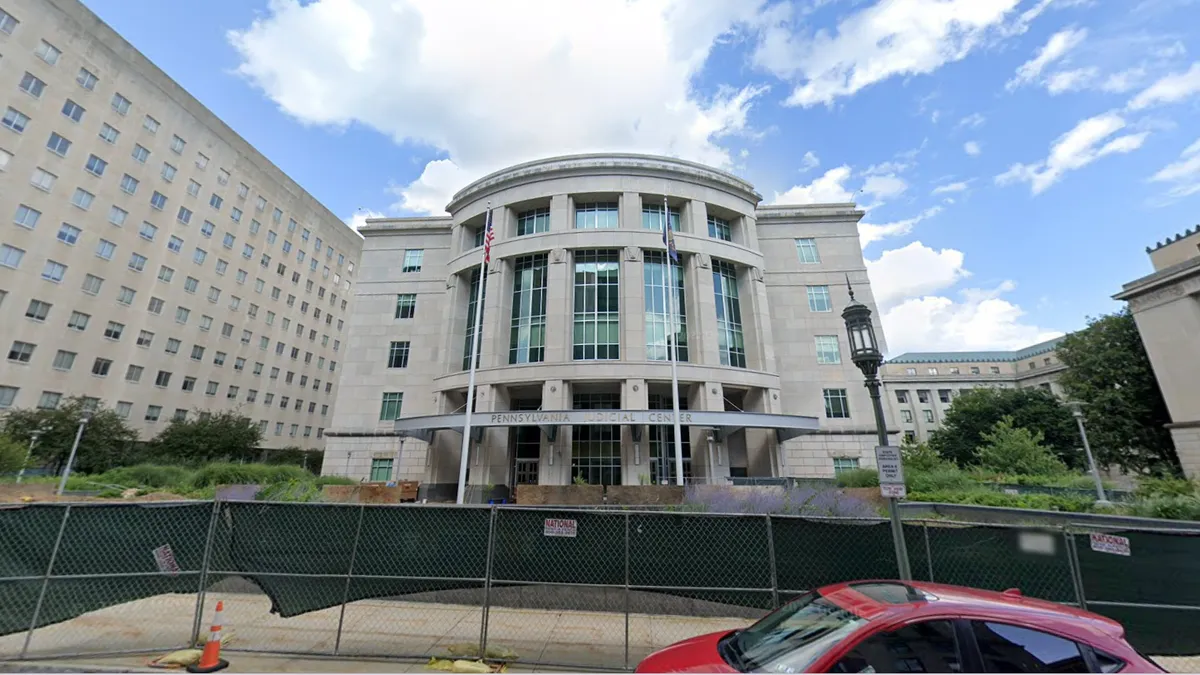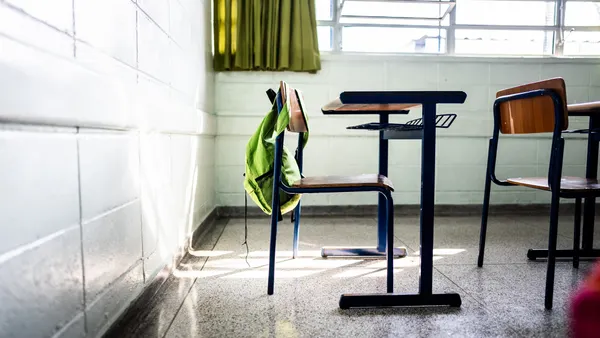Dive Brief:
-
Public education is a fundamental right under the Pennsylvania constitution and must be equitably funded, Pennsylvania Commonwealth Court Judge Renée Cohn Jubelirer ruled Tuesday in a case brought by low-income school districts, along with parents and students, against the state Department of Education.
-
The state requires that "every student receive a meaningful opportunity to succeed academically, socially, and civically, which requires that all students have access to a comprehensive, effective, and contemporary system of public education," the judge wrote in the opinion.
-
Jubelirer left it up to state leaders and the education department to remedy the state’s education funding model.
Dive Insight:
The Pennsylvania Supreme Court has so far left this issue of whether education is a fundamental right unsettled, and the U.S. constitution does not explicitly establish it as such. In fact, the Supreme Court ruled in the 1973 case San Antonio Independent School District v. Rodriguez that education is not a constitutional right.
Since then, similar right-to-education cases nationwide have led to mixed results. In 2020, a federal judge dismissed a Rhode Island case, Cook v. Raimondo, that would have revisited the Supreme Court's decision in San Antonio ISD v. Rodriguez. In that case, Judge William Smith ruled in favor of state education leaders and dismissed the plaintiffs' arguments that the state failed to provide students an education.
However, Smith said the case "highlights a deep flaw in our national education priorities and policies" and he hoped "others who have the power to address this need will respond appropriately."
Elsewhere, cases have led to temporary changes. In April 2020, students and underfunded districts in Michigan won a right-to-read case when a federal judge ruled that Americans have a "fundamental right to a basic minimum education." The decision even led to a $95 million settlement between Gov. Gretchen Whitmer and Detroit Public Schools before judges for the Sixth Circuit vacated the case and wiped out its precedent.
Such cases, including the most recent Pennsylvania case, are often tied to school district funding.
"The court recognized that our schools require adequate funding to meet our constitution's mandate," said the Education Law Center-PA and The Public Interest Law Center in a joint statement. The two organizations represented petitioners, including six districts, in the case.
"It’s time for our state legislature to fund public schools in every corner of Pennsylvania so all students, whether or not they live in a wealthy community, can receive the quality public education guaranteed in our state constitution,” the groups said.
There's no specific dollar amount attached to the case outcome, and it is up to the legislature to decide how to fund districts going forward. However, schools in the state are underfunded by $4.6 billion, according to an estimate from Maura McInerney, legal director for the Education Law Center, given at a Tuesday press conference.
Implications of the case could vary by district and students' needs, said Dan Urevick-Ackelsberg, senior attorney at The Public Interest Law Center.
This could mean resources for anything from reading specialists to counselors, and that there should be "meaningful opportunity for every student to succeed academically, socially, and civically," said Katrina Robson, an antitrust lawyer with O’Melveny & Myers LLP. "The options for reform are virtually limitless." Robson said.













